Why on earth do we ask blood donors so many questions? Dr. Mary Townsend was involved in development of the AABB Donor History Questionnaire from the beginning, and she explains the details the donor screening process.
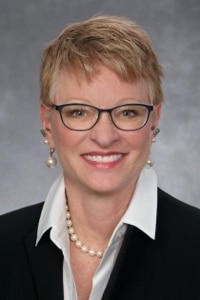
Dr. Mary Townsend
Good Intentions and Unintended Consequences
After HIV, blood centers across the U.S. generated new question after new question to protect the blood supply, and things got ridiculous! Donors had to suffer through as many as 75+ questions before donating! In addition, we asked donors to list every single medication they were taking, every time (no fun). Both donors and collectors were exhausted and ready to scream!
AABB Donor History Task Force
Today’s guest, Dr. Mary Townsend, was part of a task force established by AABB in the early 2000’s to change all of this. The group produced a streamlined system for evaluating blood donors that satisfied U.S. requirements, and the “Donor History Questionnaire” (or “Uniform Donor History Questionnare” was born! Life was good! Tears of joy were shed! Mary is here today to tell us how all of this went down, and why the DHQ is still important today.

Dr. Mary Townsend
Good Intentions and Unintended Consequences
After HIV, blood centers across the U.S. generated new question after new question to protect the blood supply, and things got ridiculous! Donors had to suffer through as many as 75+ questions before donating! In addition, we asked donors to list every single medication they were taking, every time (no fun). Both donors and collectors were exhausted and ready to scream!
AABB Donor History Task Force
Today’s guest, Dr. Mary Townsend, was part of a task force established by AABB in the early 2000’s to change all of this. The group produced a streamlined system for evaluating blood donors that satisfied U.S. requirements, and the “Donor History Questionnaire” (or “Uniform Donor History Questionnare” was born! Life was good! Tears of joy were shed! Mary is here today to tell us how all of this went down, and why the DHQ is still important today.
About My Guest:
Dr. Mary Townsend has been a Senior Medical Director for Vitalant (formerly Blood Systems) in Scottsdale, AZ since 2010. She is a clinical pathologist and Transfusion Medicine specialist with a passion for blood donors and recipients. Mary trained in Obstetrics and Gynecology at the University of Pennsylvania and completed her residency in Clinical Pathology at the Medical College of Pennsylvania. She was an inaugural member of the AABB Task Force to redesign the uniform donor questionnaire, serving as its second chair. She chaired both the America’s Blood Centers’ Scientific, Medical, Technical and Quality committee and the ABC Donor Adverse Event committee. Mary has been a member of the AABB Donor Biovigilance Working Group since its inception and was one of three centers to pilot the DonorHart Biovigilance system. She is the recipient of the AABB President’s Award for her work in the development of the Donor Biovigilance System. She is also well-known in blood banking circles for her skill with amazing western-style roping tricks.
Quick quiz:
Further Reading:
- AABB Donor History Questionnaire materials
- As mentioned, you can email AABB with questions or comments at regulatory@aabb.org




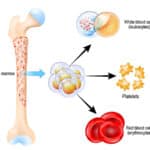

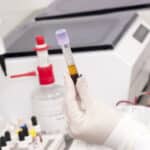



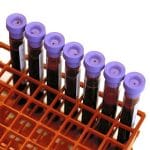

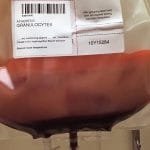
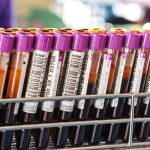
The quiz at the end of the podcast are a good addition to test how well the info was absorbed.
I’m not a physician but the logic behind deferral for malaria doesn’t seem right.
The mostiquito (vector for malaria) doesn’t need 24 hours to bite.
Well, Marion, you are totally correct. The problem is figuring out a deferral that is enforceable, logical, and provides some semblance of balance. There is no doubt that the longer you spend in an endemic area, the more likely you are to be bitten by an infected mosquito, so the 24 hour “cutoff” is not wholly unreasonable, and is FDA’s best solution to a difficult problem.
-Joe
Hi Joe!Great podcast.One question:What about donors who have had meningitis serosa nonspecifica three years ago?Can they donate?
Jasmina, decisions about disease conditions that are not specifically covered in the DHQ are the responsibility of the donor facility medical director. As a result, I can’t make a blanket “yes or no” statement.
-Joe
Ok,I understand.Thank you very much.
Dear Dr.Chaffin, thank you for producing great educational material and adding informative stuff. I am a huge fan of your work.
There have been many updates in donor deferral criteria (since Covid 2019) and changes in donor testing guidelines (such as Babesia). Currently, there is no single resource out there and, most literature is outdated. I was hoping if you can do a podcast on the updates.
Thank you
Maryam